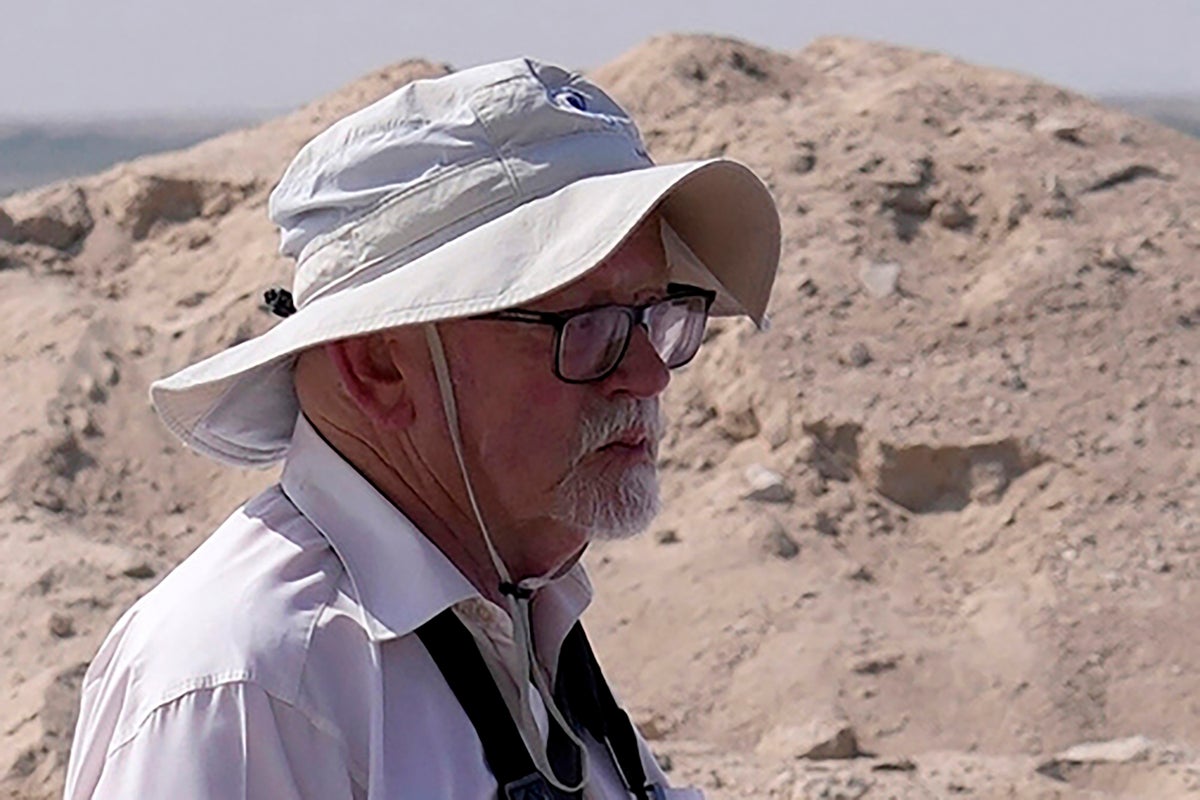
Peter Hellyer, a U.K.-born writer who spent nearly five decades chronicling the history, natural beauty and modern transformation of the United Arab Emirates, has died peacefully at the age of 75, local media reported Monday.
Hellyer, who was granted UAE citizenship and awarded the country's highest civilian honor, helped found the state-run WAM news agency and established its English service. He also helped establish an archaeological group that uncovered several historical sites.
“(Hellyer’s) passion and devotion to this land and its people will continue to inspire us to continue his legacy in protecting and preserving our environment, monuments, and ancient history,” UAE Culture Minister Sheikh Salem bin Khalid Al Qassimi wrote on Twitter.
Hellyer came to the UAE in 1975 to make a documentary film about Sheikh Zayed bin Sultan Al Nahyan, the founder and first president of the federation of seven sheikhdoms.
He stayed on to chronicle its dramatic rise from a sparsely populated desert nation to an ultra-modern hub of tourism and commerce, home to the futuristic cities of Dubai and Abu Dhabi, and the world's tallest skyscraper.
Hellyer wrote several articles and books on the country's rise, including the official history of its vital oil industry, as well as a broader, maritime history of the Gulf nation. He co-founded WAM with the late Palestinian journalist Ibrahim al-Abed and later served as director of external information and research at the National Media Council, a government regulatory body.
He co-founded and led the Abu Dhabi Islands Archaeology Survey from 1991 to 2006 and was involved in several discoveries shedding light on the history of the Persian Gulf, including a 1,400-year-old Christian monastery unearthed on Sir Bani Yas Island near the border with Saudi Arabia.
He wrote widely on the UAE's desert ecology. He chaired the Emirates Natural History Group in the early 1990s and launched its journal, Tribulus, at which he was a longtime editor. He also founded a local birdwatching society.
He was awarded the Abu Dhabi Medal in 2013 — the country's highest civilian honor. Organizers hailed him as “a self-taught jack-of-all-trades” whose “devotion to this land and its people is expressed through his commitment to protecting the country’s fragile ecosystems and history in a time of rapid development.”
He continued writing about the UAE in regular columns for The National, an English-language newspaper founded in 2008 that he had advised in its early years.
The National was among several local media outlets that reported his death. A family member did not immediately respond to a request for comment.
“Peter’s enormous role in documenting the UAE’s past and present cannot be exaggerated,” said Mina Al-Oraibi, the editor-in-chief of The National.
“Peter and his long-time friend, the late Ibrahim Al-Abed, were instrumental in laying the foundations for the UAE’s media scene and never hesitated to advise and support any journalist who reached out to them. We will miss his writings in The National and thank him for his years of contribution."
In his final column for The National, published last December, he marveled at what he said had been a “golden year” for UAE archaeology. He expressed particular fascination at the recent discovery of artifacts dating back more than 400,000 years, before the emergence of Homo sapiens.
“Most exciting of all?” he wrote. “There’s still much more to learn about the history of this land.”







